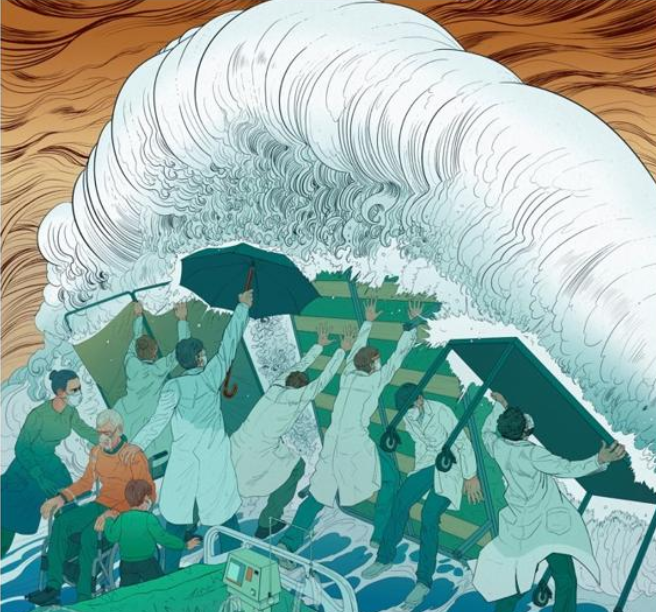Human Rights Day in the Year of the Pandemic
The periodic commemoration of certain milestones or situations, more or less officially called "international day of ...." can be a good occasion for society to take stock of the problems that affect it, facilitating the path towards a better future, from the perspective of the road that has been traveled, and above all, it is effective to keep open the interest and concern about the problem in question, so that it does not fall into oblivion or routine.
It is also true that the excess or abuse in the constant "creation" of new "days", sometimes, on trivial issues or with simple publicity aim, forces us to be rigorous and focus efforts to make visible the great causes, those that deserve greater awareness and require greater commitment.
For this reason, it makes sense for those of us who firmly believe in the principles of equality and dignity of all human beings and their peoples to keep alive each year the memory of the date on which the Universal Declaration of Human Rights was promulgated, December 10, 1948.
This year, however, deserves an additional interest: I think it is the first time since that date that it has coincided with a humanitarian crisis of absolutely global scope, affecting the lives and survival of millions of human beings in all countries without exception.
Until now, we have attended this commemoration with a regrettable "habit", coinciding with serious situations of war, conflict, social and health crises, but of a more or less local or sectoral nature. In this occasion, the horizon of the sanitary tragedy, with its sequels of poverty, discrimination or discard reaches all the beings and continents; in short, it unites us all as victims, but also as responsible.
That is why we should focus the commemoration and commitment of this 2020 on the axis of the so-called solidarity or collective rights: only from the conviction that humanity, as a whole, participates in the same dignity, we can face the challenge posed by the pandemic with hope.
And this program coincides precisely with the raison d'être of the recent Encyclical Fratelli tutti of Pope Francis: only by being brothers, in solidarity with the pain and suffering of all the victims of physical illness, but also of its social consequences, and by being aware of the damage caused to the whole of Creation, will humanity be able to overcome this catastrophe.
In this sense, our message this year and our actions as an entity, should have, as a guide, the impossibility of splitting the individual vision of the rights to life, health, social or collective aspects: A dignified life for all people, through access to decent work and shelter, to a universal and public social and health system that does not rule out or discriminate against people because of their age, race, economic or social level; to an education without technological gaps; to societies that welcome migrants and refugees; to a world without wars and weapons; to a world economic order free of debts of unjust origin, and a long etcetera, all within the framework of a sustainable environment.
In short, we must focus our efforts, this year more than ever, on connecting ecological conversion with the struggle for Human Rights.
Finally, remember with Pope Francis that "all of us have a responsibility for the wounded, those of our own people and all the peoples of the earth" (Fratelli tutti, 79), and that "the fragility of world systems in the face of the pandemic has demonstrated that not everything can be resolved by market freedom. It has also shown that, in addition, we must put human dignity back at the centre and on that pillar build the alternative social structures we need" (Fratelli tutti, 168).
Let us place in the Lord the hope that, in the commemoration of Human Rights next year, having overcome the harshness of illness and converted to a new fraternal and supportive society, we will be closer to realizing the desire expressed by the Pope in the final words of his Message for the World Day of Peace this year 2020:
"And may all men and women who come into this world experience a life of peace and develop fully the promise of life and love dwelling in their heart".
Eudald Vendrell, vice-president of the GCJP and president of JP Barcelona

